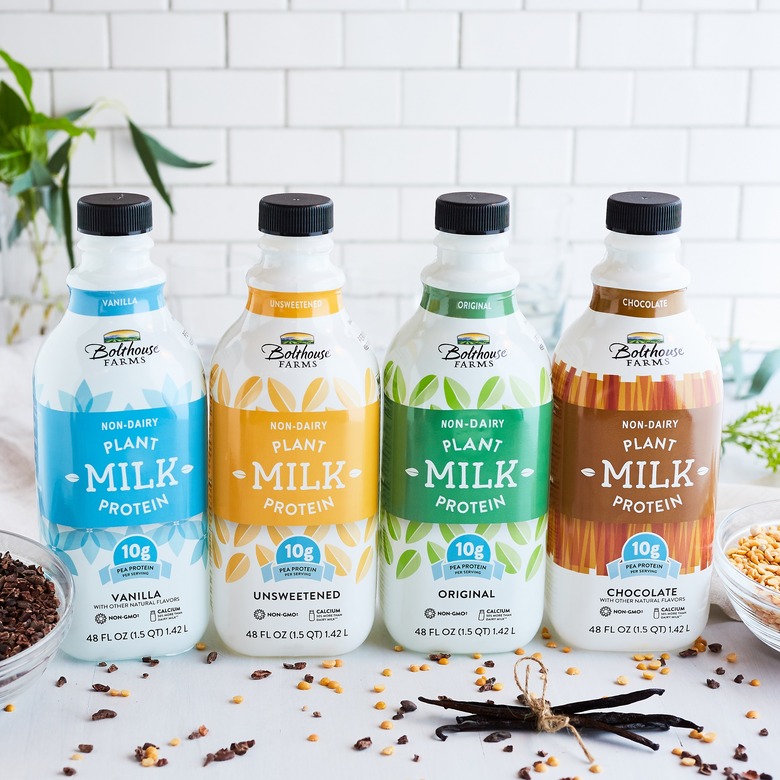This High-Protein Pea Milk Tastes Way Better Than It Sounds (And It's Vegan)
The hot debate of cow's versus almond milk rages on — but with a new contestant. Plant protein milk, which utilizes plant-based proteins to create a blend of breakfast beverages, has entered the market and is confounding consumers. However, it could be great news for vegans, the lactose-intolerant, and otherwise specified dairy-haters — depending on how it tastes.
One of the main criticisms of non-dairy milks such as almond or soy is that they lack the protein that dairy provides. A cup of cow's milk contains around 8 grams of protein, while almond milk has a dismal 1 gram. Have you ever seen the corny milk advertisements of cartons flexing their muscles?
That's where that concept comes from.
Almond, flax, cashew, and other nut- and seed-based milks have paralleled, and in some cases exceeded, cow milk's nutrition in terms of calcium and other minerals — but they just couldn't do it with protein. This excludes dairy-free consumers from the nutritional benefit that regular milk can have — especially at breakfast, when eating enough protein is key for jump-starting your day.
This new kind of milk, however, claims to eradicate the issue. Just one cup of the plant-based milk alternative has 10 grams of vegan protein. More protein than dairy milk — in a plant-based alternative.
The milk is produced by the beverage company Bolthouse Farms and it's called "Plant Protein Milk." It's made from a blend of water and pea protein, earning it the cajoling title "pea milk" by some snarky journalists. But the product is essentially just that — pea protein, mixed with water, emulsifiers, and some other flavorings and vitamins.
There are four varieties of the milk currently on shelves: unsweetened, original, vanilla, and chocolate. The flavors parallel popular versions of almond milk, clearly competing with their plant-based neighbors in the milk aisle.
We tried the milk for ourselves, and we were pleasantly surprised at the taste. It wasn't repellent or offensive — it was attractively benign. Some of our tasters believed it was similar to soy milk. Others claimed they felt a film coat the insides of their mouths after swallowing, but didn't mind the taste otherwise. We speculated this was probably an after-effect of the vegan protein.
There was communal agreement that it was thicker milk than we were used to, and that we likely wouldn't use it for cereal or with cookies. However, it would fare pretty well paired with some other smoothie ingredients in a blended breakfast, and it might add an appealing punch of protein to an afternoon snack.
The milk also seemed an attractive alternative to powdered vegan proteins, which are often either odd-tasting or texturally awkward. It also could mitigate the need for using two ingredients in a smoothie (protein powder and almond milk) by combining the desirable features of both in one.
Nutritionally, the protein and micronutrients are the most appealing part of the milk. The chocolate and vanilla varieties have a ton of added cane sugar — the chocolate flavor had 17 grams. (A can of soda has 39, for reference.)
However, chocolate almond milk has an equally large amount of sugar, also at 17 grams — so that's really more a problem with the way we sweeten products than this brand in particular. And arguably, if you're trying to limit sugar, you're buying the unsweetened variety anyway.
As dairy-free and vegan alternatives go, this one seems pretty good. We'll probably use our jugs to blend some tasty smoothies or as a protein-packed, healthy way to sweeten our coffee.

